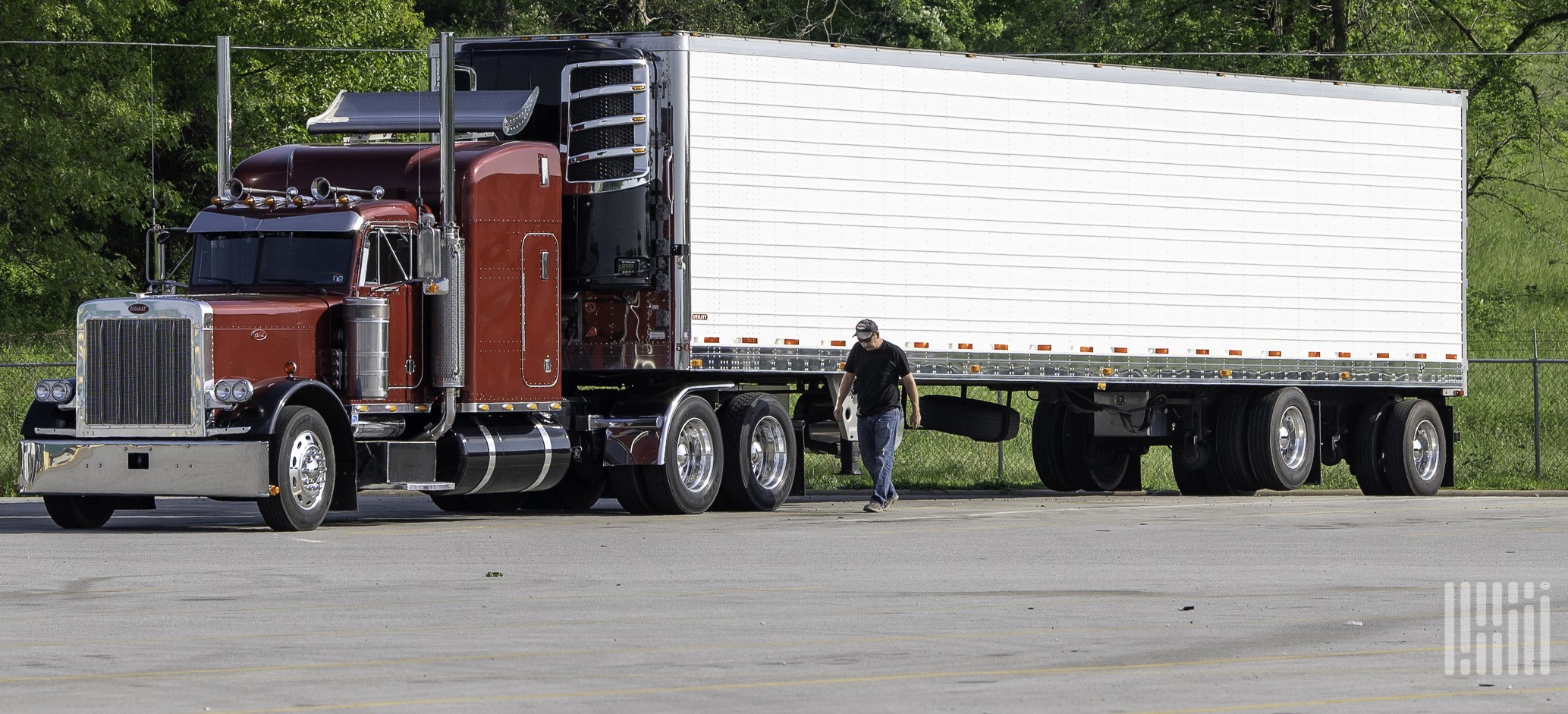While not as glamorous as long haul trucking, short haul jobs are crucial for keeping supply chains functioning smoothly in urban and suburban areas.
This article examines the key advantages and drawbacks of pursuing a career as a short haul truck driver.
What is a short haul truck driver?
Short haul trucking involves transporting goods over relatively short distances, typically within a specific region or metropolitan area. In contrast, long haul trucking requires drivers to travel across multiple states or even across the country.
The trucking industry plays a vital role in the movement of goods, and short haul trucking is essential for efficiently distributing products within local markets. These truckers transport cargo from distribution centers to retail outlets, construction sites, and other businesses within a limited geographic radius.
A day in the life of a short haul trucker
Before hitting the road, thorough inspections and paperwork ensure compliance and readiness. Drivers then focus on efficient cargo transport planning across city streets.
On the road, they navigate traffic, detours, and tight delivery timelines while staying alert, leveraging shortcuts, and exercising defensive driving.
Exceptional customer service skills are crucial when interacting with clients.
Above all, a steadfast commitment to safety, including awareness of pedestrians and proper cargo handling, underpins this demanding yet rewarding logistics profession.
Pros of short haul trucking
Consistent home time
For those seeking a stable work-life balance, short haul trucking offers a compelling advantage — the ability to return home daily or every few days at most.
Unlike their long haul trucker counterparts who can spend weeks or even months on the road, these local haulers enjoy the comforts of a consistent home life.
This regularity allows them to attend important family events, maintain meaningful relationships, and pursue personal interests outside of work – luxuries that are often sacrificed in the long haul trucking world.
Predictable routes and schedules
With a defined service area, short haul truckers become intimately familiar with their delivery routes, reducing stress and increasing efficiency. They can navigate local streets and neighborhoods with confidence, leveraging their knowledge of shortcuts and traffic patterns to optimize their routes.
Furthermore, regular working hours and minimal overtime make it easier to maintain a consistent schedule and plan personal activities accordingly, providing a level of predictability that many find desirable in their work-life balance.
Less stress and fatigue
The nature of short haul trucking inherently reduces the risk of stress and fatigue that plagues long haul truck drivers.
With shorter driving distances and fewer hours spent on the road, these local haulers experience less physical and mental strain. This lower risk of fatigue-related accidents contributes to a safer working environment and increased peace of mind.
Moreover, a better overall work-life balance is achievable, with less time spent away from home and more opportunities for rest.
Job opportunities in urban areas
Metropolitan areas and cities create a high demand for short haul truckers to transport goods within their local regions.
From delivering products to retail outlets and construction sites to supplying businesses with essential materials, these drivers play a crucial role in keeping urban supply chains functioning smoothly.
Depending on the location, short haul trucking jobs in urban areas can offer competitive pay rates and attractive compensation packages, making it a lucrative career choice for those who thrive in bustling city environments.
Cons of short haul trucking
Traffic congestion and city driving
One of the biggest downsides of short haul trucking is the constant battle with urban traffic congestion.
Navigating through densely populated city streets and crowded neighborhoods can be a nerve-wracking experience, with frequent stops and starts, lane changes, and the ever-present risk of accidents.
These challenging driving conditions not only increase stress levels but can also lead to longer delivery times, as drivers struggle to maneuver their large vehicles through bottlenecks and construction zones.
Physically demanding work
While the shorter distances may seem less taxing, short haul trucking is still a physically demanding profession.
Drivers are tasked with the frequent loading and unloading of cargo, often requiring them to lift heavy items and operate machinery. This strenuous aspect of the job can take a toll on the body over time, increasing the potential for injuries such as back strain, muscle tears, or other musculoskeletal issues.
Proper training and adherence to safety protocols are crucial to mitigating these risks.
Lower pay compared to long haul trucking
Despite the challenges, one of the more significant drawbacks of short haul trucking is the potential for lower pay compared to long haul trucking roles.
While compensation can vary based on factors such as region and company, long haul truckers generally command higher salaries due to the extended periods they spend on the road and the greater distances they cover.
Short haulers, on the other hand, may find their earnings capped as their routes and responsibilities are more localized.
Limited career growth
For those seeking a long-term career path in the trucking industry, short haul trucking may present limited opportunities for advancement.
With a focus on local deliveries and a more contained service area, the scope for career growth within short haul roles can be narrow.
To progress further or take on greater responsibility, drivers may need to consider transitioning to long haul trucking, which requires a different set of skills and a willingness to spend extended periods away from home.
Short haul truck driver salary
Short haul truck drivers can earn a fairly wide range of salaries depending on factors like experience level, type of trucking, and employer. Here are some details on short haul trucker pay:
- Average annual salary: The average annual salary for short haul truck drivers ranged from $40,000 to $60,000 in 2023, depending on experience, location, and employer.
- Entry level pay: Entry-level short haul truckers could expect to earn around $35,000 to $45,000 per year while gaining experience.
- Top pay levels: Highly experienced short haul drivers working for top-paying short haul trucking companies for unions could earn $65,000 or more annually.
- Pay per mile: Some short haul driver jobs pay by the mile, typically between $0.35 to $0.55 per mile driven.
- Hourly pay: Hourly pay rates for short haul truckers vary from $16 to $28 per hour, based on location and company.
- Owner operators: Experienced owner-operators running their own short haul trucking business could potentially earn $80,000+ annually.
- Benefits: Major employers offer benefits like health insurance, retirement plans, and paid time off.
- Performance bonuses: Safety and performance bonuses up to several thousand dollars annually can be common for top short haul truckers.
Evaluate your needs
Choosing between short haul and long haul trucking requires evaluating personal preferences, lifestyle, and career goals.
Short haul offers home time, predictable schedules, and urban job opportunities but with challenges like city driving, physical demands, potentially lower pay, and limited growth. Long haul may provide higher earnings and advancement at the cost of family life.
Prospective truckers must weigh factors like circumstances, finances, and aspirations to make an informed choice aligning with their desired lifestyle and trajectory.
FAQ
Short haul trucking typically involves hauling loads within a radius of around 150-200 miles from the driver’s home base or terminal. The specific distance can vary, but most short haul runs allow drivers to return home at the end of each shift or after a couple of days on the road.
Long haul trucking generally refers to hauling freight over distances greater than 500 miles, often spanning multiple states or across the country. These runs can keep drivers away from home for extended periods, sometimes weeks or even months at a time.
Short haul trucking can be worth it for drivers who value being home regularly and having a more predictable schedule, despite potentially lower pay compared to long haul trucking. However, it may not be as appealing for those seeking higher earning potential or the adventure of cross-country hauling.
Sign up for a FreightWaves e-newsletter to stay informed of all news and trends impacting supply chain careers and operations.



